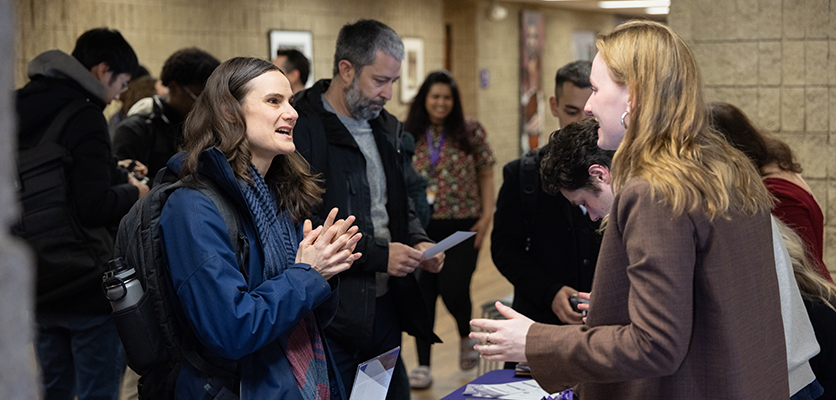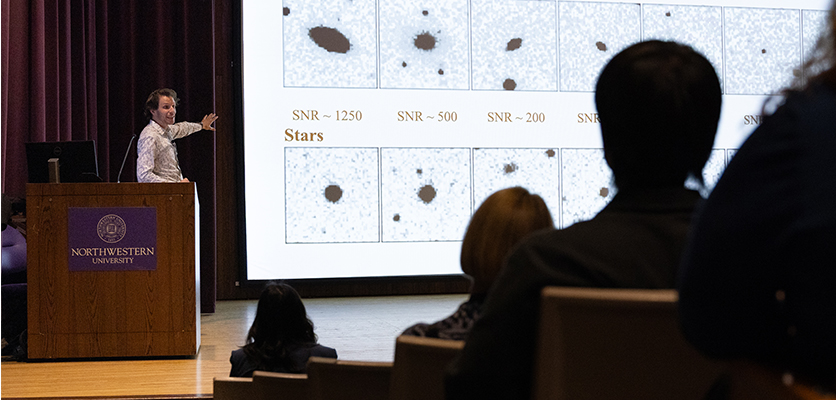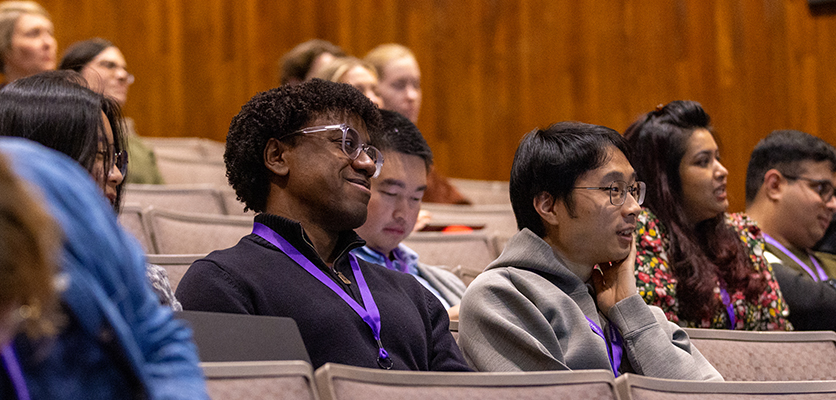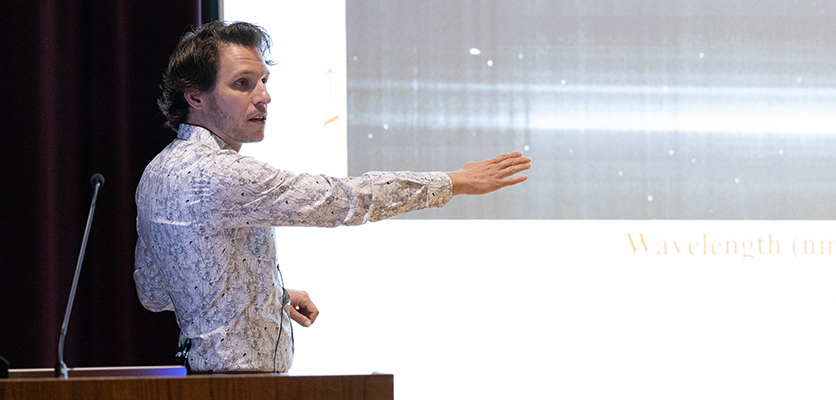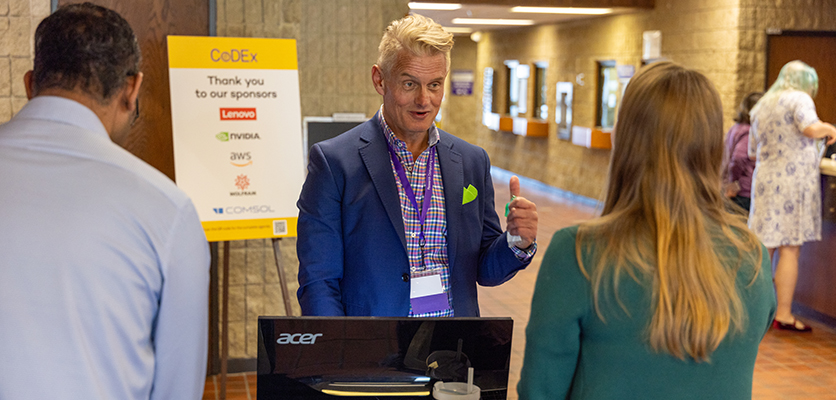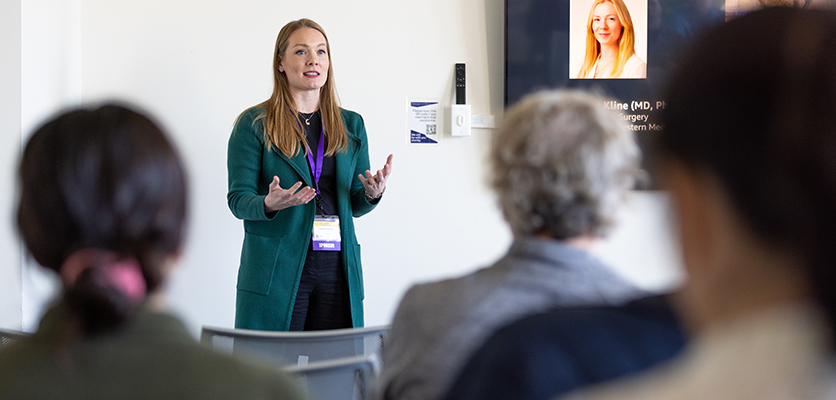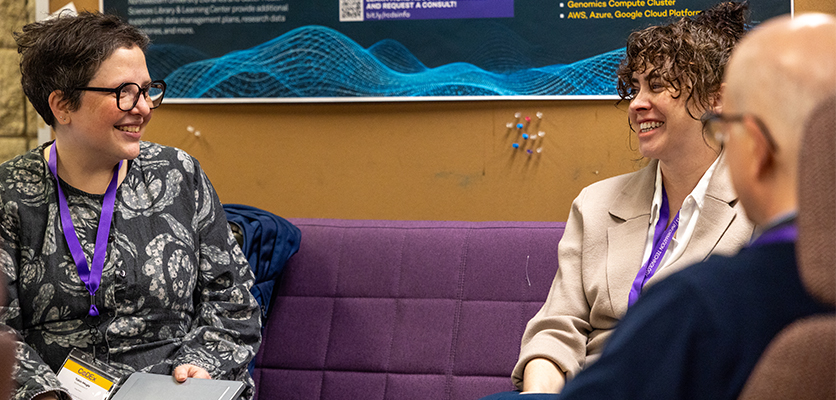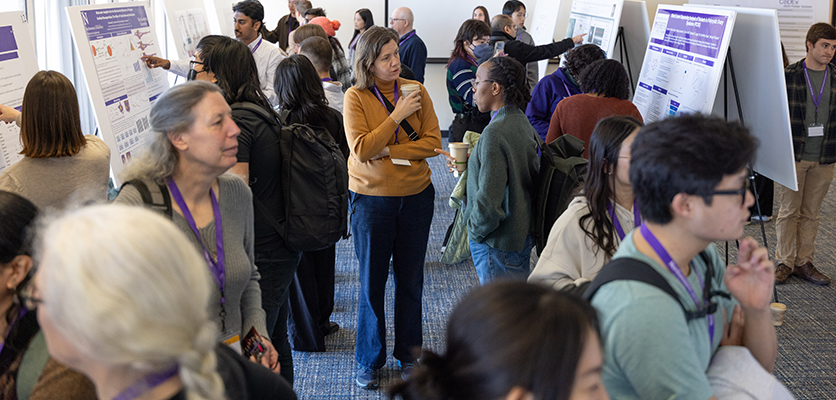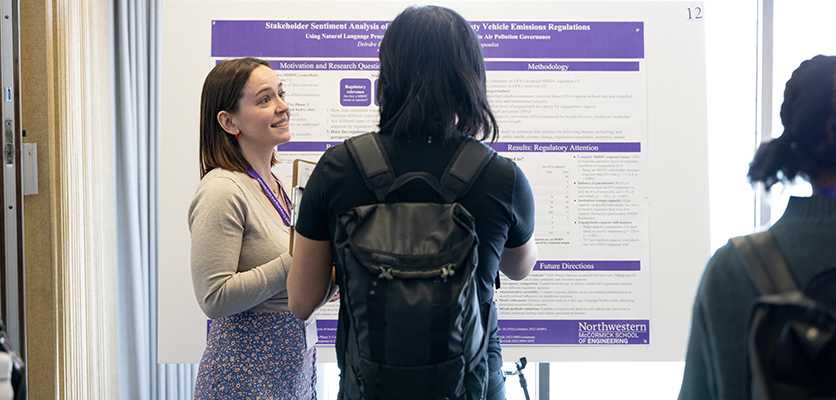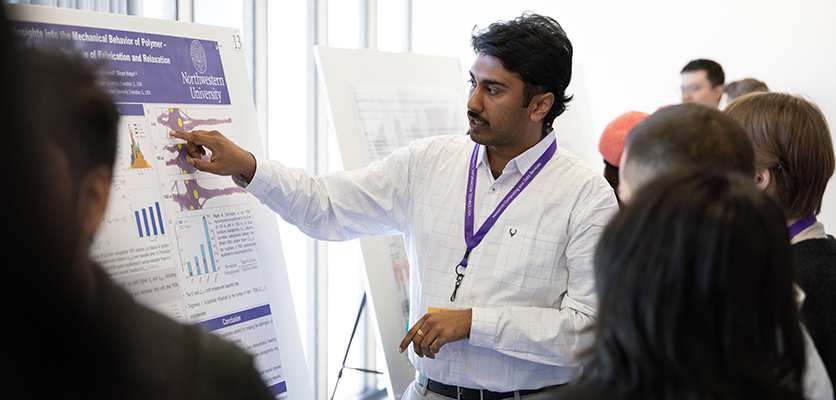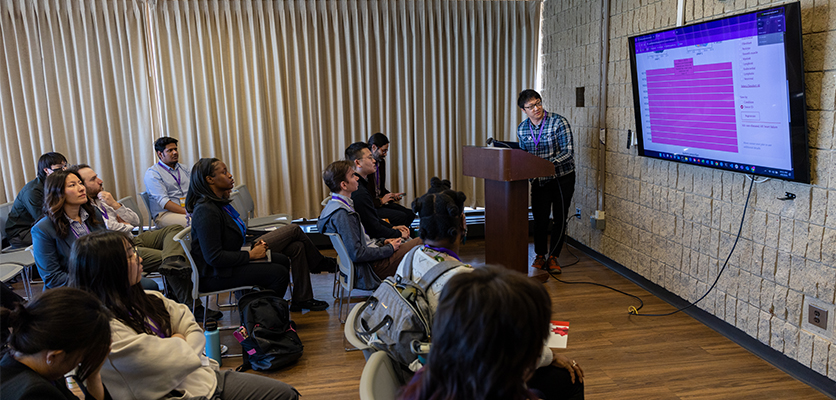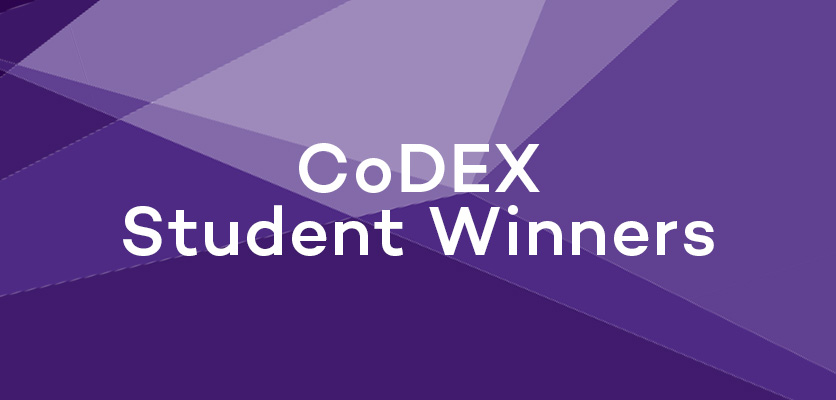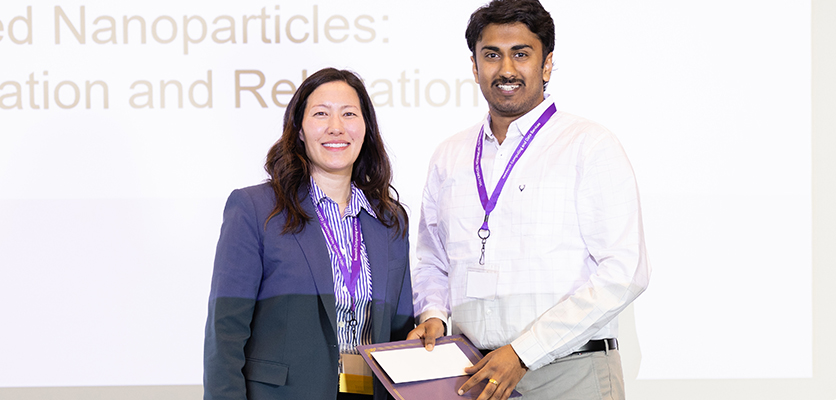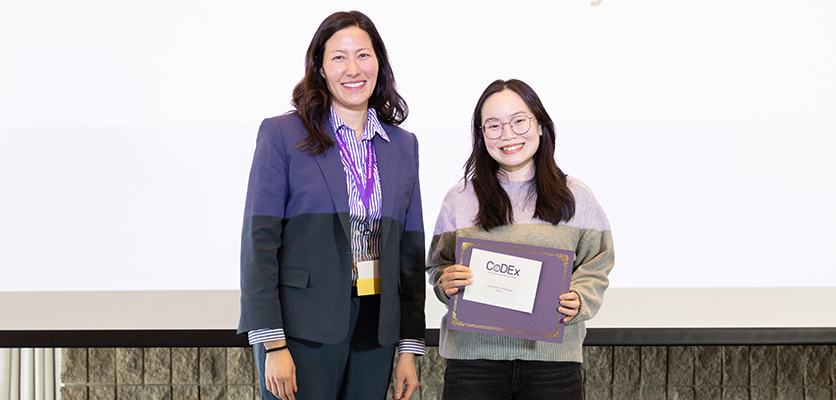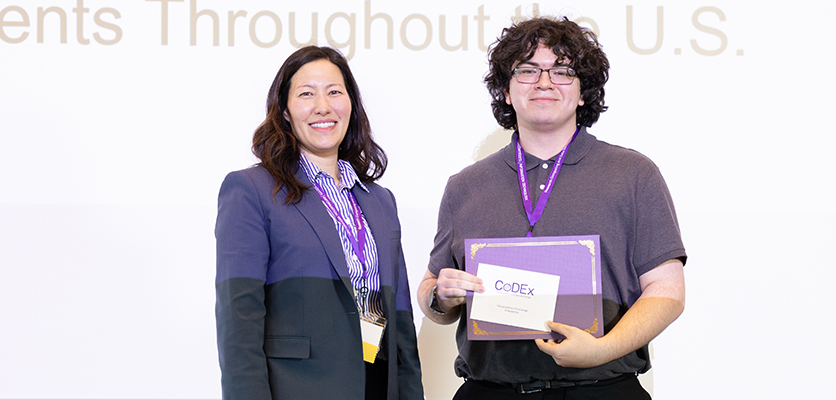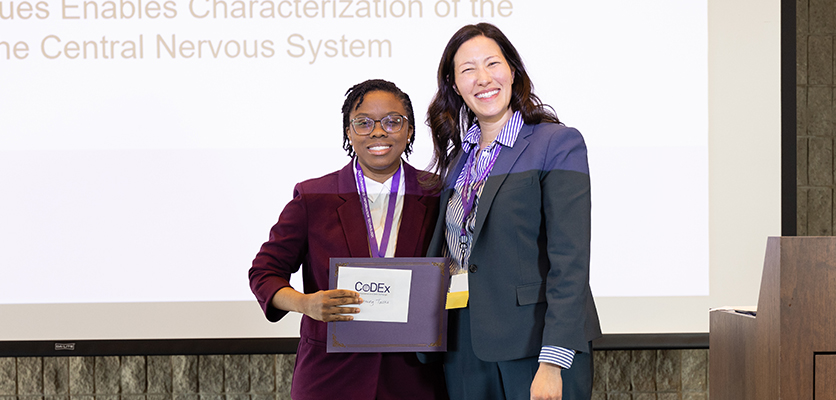Northwestern Research Achievement and Discovery Celebrated at CoDEx 2025
Posted Date: April 16, 2025
Research innovation and discovery were in bloom this spring when more than 200 Northwestern research community members gathered at the second annual Computation and Data Exchange (CoDEx) symposium on April 8, 2025, at the Norris University Center. The campus-wide event, hosted by Northwestern Information Technology (IT) and sponsored by the Office of the Provost and corporate sponsors, showcased innovative approaches to computational and data-intensive research.
The morning began with a welcome from Jackie Milhans, director of the Research Computing and Data Services (RCDS) unit. In her opening remarks, Jackie expressed her deep appreciation for the opportunity to celebrate the amazing research conducted across campus and engage with peers. She also emphasized the many services RCDS offers in support of Northwestern research in all disciplines, including quarterly research-focused workshops, access to high-performance computing and software, data storage, and project collaboration and consultation.
CoDEx is unique in that it allows folks to learn about research across multiple disciplines at Northwestern. It is not every day that you have the opportunity to learn what is happening in another hallway, building, or on the Northwestern campus 12 miles away from you.”
Jackie Milhans
Director, Research Computing and Data
Northwestern Information Technology
Keynote Recap
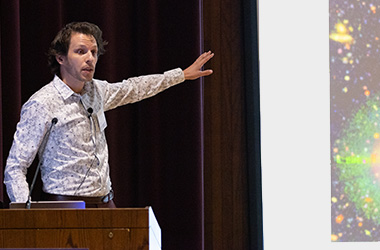
Guest keynote speaker Adam Miller, assistant professor, Department of Physics and Astronomy, Weinberg College of Arts and Sciences, gave a talk titled Ten Billion Galaxies! Ushering In the Petabyte Era in Astronomy and Astrophysics.
Miller’s career as an astronomer started at Northwestern during a summer project using data for six stars and later developed an interest in exploding stars and the application of machine learning models to astronomical time-series data.
His research group works at the intersection of data science and astronomy, focusing on determining the stellar systems that produce explosions in distant galaxies. In 2023, the group produced the first-ever fully automated observation, detection, identification, request for follow-up, spectroscopic classification, and public announcement of an exploding white dwarf star. The machine learning models that enabled this discovery were all trained on Quest, the University’s high-performance computing cluster.
Miller also noted that the massive array of data collected by modern telescopes, coupled with powerful computing techniques and facilities like Quest, should make these discoveries more common over the coming years.
He shared four big lessons that encourage appropriate use of machine learning (ML) tools rather than eliminating human processes altogether. These lessons included "Cutting edge ML models are not [always] a requirement for significant impact,” and to “Automate every repeatable task.”
Part of the reason I am deeply fascinated by astronomy is that the Universe is so large it is not 'difficult' to observe something that no other human has ever seen before. I first experienced this 20 years ago as an undergraduate working on a summer project at Northwestern, but this is still happening today, as Dr. Steve Schulze, a research associate working in my group, recently announced the discovery of an entirely new and completely unanticipated type of stellar explosion. ”
Adam Miller
Assistant Professor, Department of Physics and Astronomy
Weinberg College of Arts and Sciences
Symposium Highlights
Throughout the morning event, attendees engaged in research talks representing many disciplines, organized by three tracks: Healthy Humans and the Cosmos; Legality, Literature, and Ligatures; and Microbiota to Medical Imaging.
In a first for the symposium, corporate sponsors, including Amazon Web Services, Lenovo, Nvidia, and Wolfram, demonstrated their services and offered examples of how they enhance Northwestern research.
Undergraduate and graduate students and postdocs, keen to share their research findings, presented posters, visualizations, and lightning talks covering a wide range of topics. Awards made possible by our corporate sponsors were presented for outstanding poster presentations, lightning talks, and data visualizations at the close of the program. Congratulations to all the competition winners!
Images of CoDEx
If you missed this year's symposium, we hope you attend next year to connect with the cross-disciplinary research community and learn about innovative work across the University. View the highlights from CoDEx 2025.
Northwestern IT is already busy planning for CoDEx 2026. Until then, please visit the Research Computing and Data Services website to learn about upcoming workshops, events, and resources for our research community.
